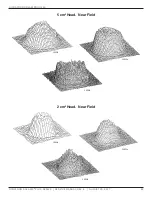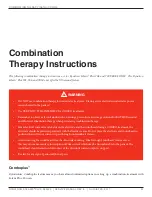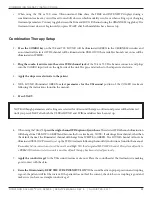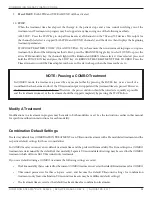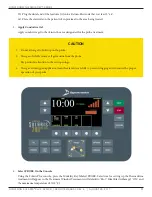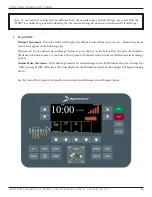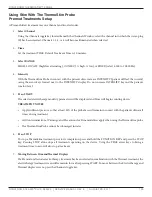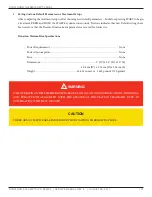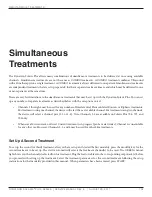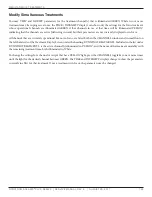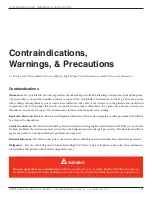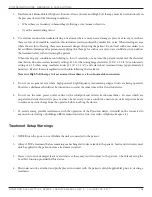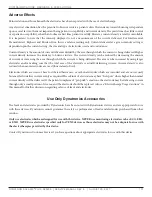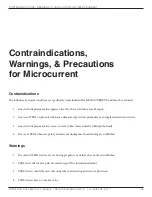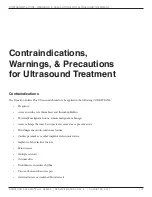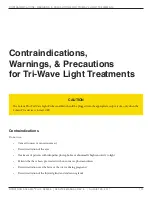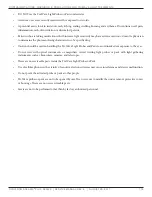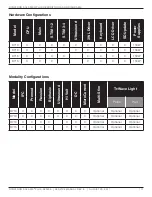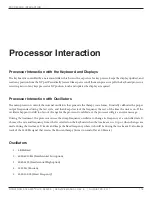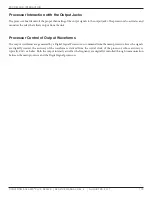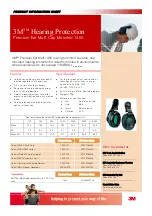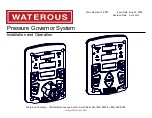
ConTraIndICaTIons, WarnIngs, & PreCauTIons
DYNATRON SOLARIS
®
PLUS SERIES | SERVICE MANUAL REV. 6 | AUGUST 29, 2017
104
Contraindications,
Warnings, & Precautions
for Interferential, Premodulated, Russian, Biphasic, High Voltage Pulsed Stimulation, and Direct Current Treatments
Contraindications
Thrombosis. It is possible that the current produces chemical changes in the blood leading to alterations in the clotting time.
At present there is no specific scientific evidence to support this. Nevertheless, treatment must not be given to any patient
who is taking anticoagulants as it may render these ineffective. The effect of the current is on the platelets and would tend
to spread any clot with perhaps fatal results in a patient with coronary thrombosis. If a patient has a history of deep vein
thrombosis, even many years past, the treatment may increase rather than decrease swelling.
Implanted Electronic Devices. Patients with Implanted Electronic Devices (for example a cardiac pacemaker) should not
be subjected to stimulation.
Cardiac Conditions. The electrodes should be placed to avoid the stellate ganglion and the heart itself. If there is a potential
for heart problems, the clinician must exercise professional judgment and use adequate precautions. The clinician should not
expose the patient to risk if possible heart problems are suspected.
Bacterial Infections. The effect on bacteria is uncertain, and it is advisable that bacterial infections should not be treated.
Malignancy. The use of Interferential, Premodulated, High Volt, Direct Current, Biphasic, or Russian Stim treatment is
contraindicated in patients with clinically diagnosed cancer.
WARNING
Thoracic applications are contraindicated: Additional warning from the Canadian Health and Welfare Department,
Health Protection Branch. Cardiac fibrillation may occur if output current is 50 mA RMS or greater for any output circuit.

